Private Henry Johnson was on watch in the French trenches of the Argonne Forest on May 15, 1918, when a grenade exploded nearby.

With his fellow soldier Needham Roberts badly injured, Johnson faced an approaching German patrol on his own. He shot down one soldier and clubbed another with the end of his rifle. Wounded, Johnson fell to the ground. He seized a grenade and tossed it, and several more, at the Germans.
By the time he was through, the former porter for the New York Central Railroad had single-handedly wounded or killed as many as 20 enemy soldiers . . . with just a knife and a gun. He had more than 20 wounds of his own. The American press called the incident “the Battle of Henry Johnson.”
Two days later, the French presented Johnson with the Croix de Guerre, their country’s highest military decoration for bravery. He was the first U.S. soldier to receive the honor during World War I. When asked about his actions, Johnson said, “There isn’t so much to tell. Just fought for my life. A rabbit would’ve done that.”
When President Woodrow Wilson said, “The world must be made safe for democracy” in April 1917, many black Americans struggled with the call to support the war effort. African Americans faced daily discrimination and segregation in the United States. Still, more than 380,000 black Americans enlisted to serve in the army during World War I. They hoped that their military service would improve civil rights for all African Americans in the United States.
Bu hikaye Cobblestone American History Magazine for Kids dergisinin May/June 2017 sayısından alınmıştır.
Start your 7-day Magzter GOLD free trial to access thousands of curated premium stories, and 9,000+ magazines and newspapers.
Already a subscriber ? Giriş Yap
Bu hikaye Cobblestone American History Magazine for Kids dergisinin May/June 2017 sayısından alınmıştır.
Start your 7-day Magzter GOLD free trial to access thousands of curated premium stories, and 9,000+ magazines and newspapers.
Already a subscriber? Giriş Yap
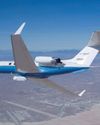
Eye in the Sky
An interview with Joe Piotrowski
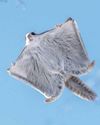
Airborne Animals
Humans have taken to the skies in balloons, gliders, and airplanes-but we're not alone among the clouds. Animals of all sorts have evolved to harness wind power.
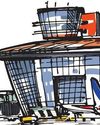
TAKING OFF
The Wright brothers expected airplanes to “take off,” but even they might be amazed at the way the airline industry has become big business. In the past, it was expensive to send something by plane.

GROWTH OF AN INDUSTRY
After their historic flight at Kitty Hawk in 1903, Wilbur and Orville Wright returned to Dayton, Ohio. They spent the next few years making adjustments and building additional versions of their powered aircraft in their bicycle shop.
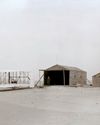
WHY KITTY HAWK?
The Wright brothers searched carefully for the best place to test their gliders and flying machines. Their main concern was for good, steady winds. But they also hoped to find a remote location to allow them to perform tests away from the public eye.
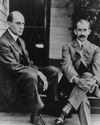
Two Brothers From Ohio
Most people do not realize that the Wright brothers—Wilbur, born in 1867, and Orville, born in 1871—performed various scientific experiments before inventing their aircraft. For as long as anyone in their hometown of Dayton, Ohio, could remember, the Wright boys had worked on mechanical projects.
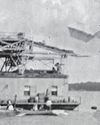
A Helping Hand
May 6, 1896. A group of people who had gathered beside the Potomac River, just south of the U.S. capital, grew quiet. Then, it erupted in cheers as a small, unmanned aircraft took to the skies and flew for more than half a mile. The flight came seven years before the Wright brothers’ first manned, powered flight. The inventor of the aircraft was Dr. Samuel Pierpont Langley.
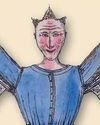
THE IDEA MEN
People dreamed of flying thousands of years before the Wright brothers found success near Kitty Hawk, North Carolina. These dreamers, such as Leonardo da Vinci, studied birds flying and imagined how humans might do the same—if only they had wings. Other men developed a more hands-on approach to the topic. Early inventors made wings of cloth, glue, and feathers and tied these creations to their arms in an attempt to imitate nature.
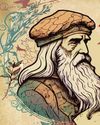
Da Vinci's 4 Designs
Have you ever wondered how a bird flies? Leonardo da Vinci (1452–1519) did. He thought that understanding how a bird flies would provide the key to human flight. So, what did da Vinci learn from birds?
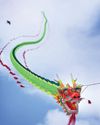
Silken Wings
Seven hundred years before the Wright brothers began experimenting with human flight, the Chinese had already mastered its secrets—with kites.